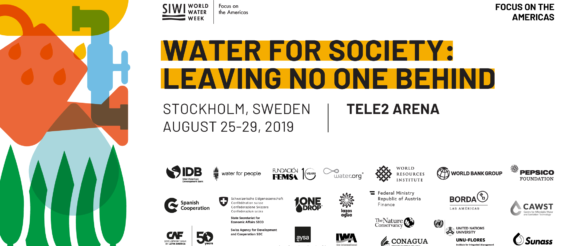David and goliath: a false dilemma for innovation in the WASH sector – Volvamos a la fuente

Innovation in the WASH sector does not need to come from the big players. Startups are key to produce disruptive changes -for the better- in water and sanitation.
Being an entrepreneur is a daunting task. You face dozens of challenges every single day. The digital platform you developed has too many bugs. Your prototype is taking much longer to develop than planned. Someone in your team is not really a team player. Your co-founder is not as stable as you thought. Revenue is not kicking in as your investors expect. Your cash is running low and you have no idea how to finance your next-month expenses. The list could go on forever.
The Water, Sanitation and Hygiene (WASH) sector is no different. It is even worse. WASH entrepreneurs do not have the support ecosystem and willingness to invest you may find in other sectors such as FinTech, AgTech, FoodTech or EdTech. You name it. There are not many Venture Capital Funds actively looking to invest in WASH startups. Most of the financing options come from awards, grants and other highly transactional options. It is tough.
Innovation in the WASH sector typically takes at two levels: i) at the utility (or service provider) level; and ii) at the startup ecosystem level. For simplification purposes I will obviate research centers and universities, who typically develop world-changing prototypes with absolutely no business model. Therefore, not much really, at least in terms of WASH.
A small group of utilities, mostly private, are becoming true innovation engines. Span’s Global Omniun, which launched GoAigua, a spinoff that focuses on the digitization of the water industry. Suez with its own in-house innovation track. Sabesp, a Brazilian public-private company, that applies solutions developed by local startups. There are more, but they are still the exception. Many of the world’s leading water companies have been around for decades. They are natural monopolies who do not feel the need for rapid innovation. They enjoy acceptable margins and believe they are insulated from competition.
But we live in an era of disruption. Change could be fast. As the one and only Jack Welch once said: “If the rate of change on the outside exceeds the rate of change on the inside, the end is near.” The startup ecosystem could unlock anytime. Piped versus off grid. Incumbent versus insurgent. Goliath vs David. Utilities versus startups. It is already happening in countries like Israel.
This is what we want to discuss at World Water Week on Sunday August 25th. How to unlock innovation in the WASH sector and overcome the limitations the startup eco-system face? Is it financing gaps, technical support, organizational culture, market development and access, communications? How can institutions like the Inter-American Development Bank or the Stockholm International Water Institute help startups cross the chasm? But we do not only want to discuss startups. We also want to discuss utilities. What are the bottlenecks, challenges, and opportunities these companies face? How can startups help utilities get higher margins? How can they help big utilities unlock innovation? In summary, how can David help Goliath. Don’t miss it! It will be fun. The Program here for more details.
This blogpost is published as part of World Water Week 2019 organized by the Stockholm International Water Institute from August 25th to 30th in Stockholm, Sweden. The IDB is regional coordinator for the Americas as well as Key Collaborating Partner.
Suggested reading:
The Case for Green Infrastructure in LAC: Conclusions from Stockholm World Water Week 2018
